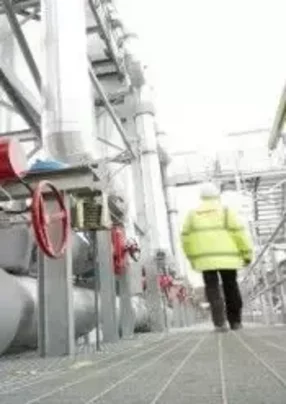
Veolia Water Technologies
Veolia Water Technologies has built on the latest innovations and market-leading developments over the past four years as it looks to integrate the skills of the wider Group to further optimise its offering.
Having successfully completed numerous high profile water and wastewater management projects in the UK in recent years, in both the industrial and municipal sectors, the company is refusing to rest on its laurels as it strives for further efficiencies and further technological advancements.
Business Development Director, Mike Froom, said: “Our annual investment into research and innovation typically stands at around €150 million per annum and primarily focuses on technologies and services that have the ability to reduce the human and environmental impact.
Froom, who has overseen much of the continuous improvement that has occurred in recent years, added: “Research and innovation remains a primary focus for us and a good example four years ago was the introduction of some proprietary software called Ocean which helped the Group optimise technology selection in terms of carbon and lifecycle costs.”
Over the past four years, the company has seen Ocean grow in terms of sophistication to become a much more comprehensive software tool, now used not only for selection of technologies but also for improvement and optimisation of operational efficiencies within existing wastewater and sludge treatment plants.
Product recovery
With hundreds of millions of Euros having been spent each year on the development and refining of these processes, in line with and usually ahead of the industry curve, Veolia’s attentions have now turned to the optimisation of product recovery.
This move comprises a veer away from the traditional wastewater treatment plant concept to more of a bio refinery concept aiming to harness the sludge as a consequential resource as opposed to treating it as waste.
“Through our research, we’re now considering the potential for the recovery of organic and inorganic material from wastewater rather than looking at wastewater as a water that contains pollutants,” Froom said.
“Rather than targeting the reduction of waste, we can now look at where we can achieve product recovery, and certainly in terms of the recovery of bioplastics from wastewater, we are already at the forefront.”
As well as in the area of energy regeneration, Veolia has also placed increased emphasis on its operational technologies and control systems.
This has resulted in not only the development of its existing OCEAN software but also the ongoing development of a real-time control system called STAR.
Froom continued: “STAR is promoted for use in wastewater treatment plants and can also be used for sewer networks, looking at optimisation of capital investments into these networks and storage systems, coupled with optimisation of the operation of the plants.
“In doing that, we look to achieve both capital investment savings in the network and operational savings in terms of reduced energy costs and chemical consumption.”
One Veolia
Internally developed solutions such as OCEAN have had a successful ripple effect across the entire Veolia organisation, especially in the UK, where they are implemented on a number of wastewater treatment sites, overseeing a series of operational interventions.
One such project in Scotland comprised seven of these interventions including modifications to the inlet works, pumping systems, additional instrumentations and control systems, amounting to approximate savings of £200,000 per annum.
This leveraging of Veolia’s research and development has recently become a more conscious undertaking within the company under its One Veolia strategy which aims to find more integrated and efficient solutions across the areas of operational costs, efficiency savings and energy generation.
“The One Veolia strategic plan was brought about in 2011 to focus on the bringing together of the core areas of the business in a much closer cooperation,” Froom said.
“As the company grows both acquisitionally and organically, it has the potential to spread in its activities. Veolia has recognised that and actively initiated One Veolia to drive those water management, energy and waste market sectors back together.
“I think it’s timely because not only did we want to do that as an organisation but there is more desire and recognition of value in bringing these sectors together for the client as well.”
Added value
As well as this more integrated and collaborative model of business, the innovative software is also playing a big role in appealing to clients in the UK, with three major water companies already expressing interest in STAR software control at present.
This epitomises an ongoing togetherness within the industry which Veolia has been instrumental in contributing to in recent years.
A significant aspect of this has been its support of British Water themselves who have recently made strides in converting the industry to be less capital intensive, with more emphasis placed on operational cost management within the sector.
“It’s a move in the right direction and we will continue to support British Water in their endeavours while continuing to differentiate ourselves in the various markets too,” Froom concluded.
“We do this on two levels: on the quality and performance of our technologies that we’ve developed, and also on the added-value service and offerings we provide as one of the leading players in water and wastewater treatment.
“The company as a whole has been in existence for more than 150 years and throughout that time it’s remained strong due to its ability to adapt and change to the market place.”
